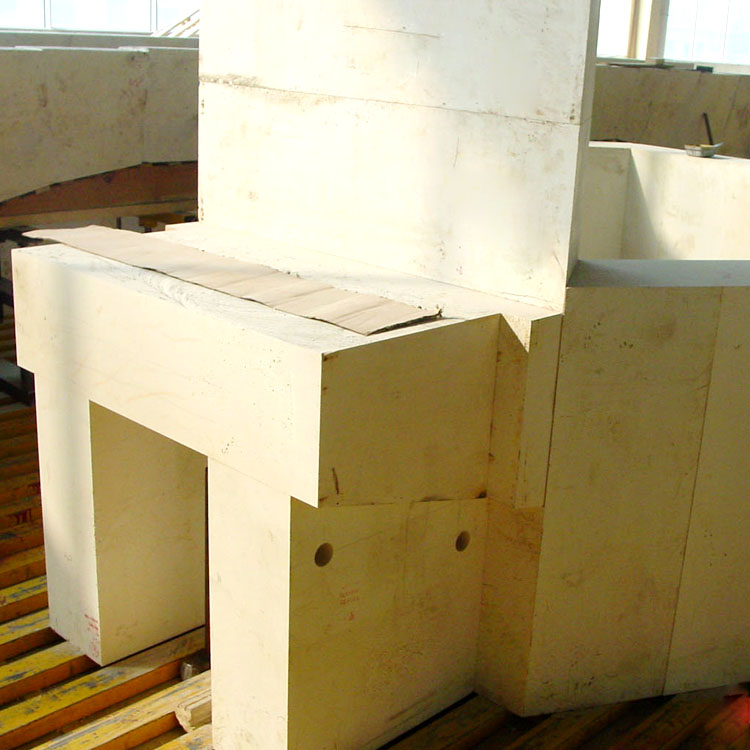
In industrial production, equipment often faces severe challenges from high temperatures and corrosion. These harsh conditions can lead to equipment damage, reduced product quality, and increased maintenance costs. Fortunately, corrosion-resistant sillimanite bricks offer an effective solution to these problems. This article will delve into the technical principles of these bricks, their material characteristics, performance parameters, and industrial applications, highlighting how they can benefit businesses.
Corrosion-resistant sillimanite bricks are made from sillimanite minerals through high-temperature firing. During the firing process, sillimanite is transformed into mullite and free silica, endowing the bricks with excellent properties. They have a high refractoriness, typically reaching up to 1750°C, which allows them to withstand extremely high temperatures without melting or deforming. Their thermal shock stability is also remarkable, with the ability to endure rapid temperature changes up to 8 - 10 times without cracking.
In terms of corrosion resistance, these bricks can resist the erosion of various acidic and alkaline substances. For example, in an acidic environment with a pH value of 2 - 3, the corrosion rate of the bricks is less than 0.5% per year, ensuring long - term stability in corrosive conditions.
One of the main application scenarios for corrosion-resistant sillimanite bricks is in glass furnaces. Glass production involves high temperatures and corrosive substances such as molten glass and combustion gases. Sillimanite bricks can be used as the lining material for glass furnaces. According to industry statistics, using sillimanite bricks in glass furnaces can extend the service life of the furnace by 2 - 3 years compared to traditional materials. This not only reduces the frequency of furnace repairs and replacements but also ensures the stability of the glass production process.
In addition to glass furnaces, these bricks are also widely used in other high - temperature and corrosive industrial equipment, such as steelmaking furnaces and chemical reactors. In the steelmaking industry, they can be used in the lining of electric arc furnaces, effectively protecting the furnace from the high - temperature molten steel and slag. In chemical reactors, they can resist the corrosion of various chemical substances, ensuring the safe and efficient operation of the reactors.

.jpg)

By using corrosion - resistant sillimanite bricks, businesses can significantly reduce the risk of equipment damage. The high refractoriness and excellent corrosion resistance of these bricks ensure that the equipment can operate stably in high - temperature and corrosive environments, reducing the probability of equipment failure and downtime. According to a survey, companies that use sillimanite bricks can reduce their equipment maintenance costs by 30 - 40%.
Moreover, the use of these bricks can improve product quality. In glass production, for example, the stable operation of the glass furnace lined with sillimanite bricks can ensure the uniformity and purity of the glass, resulting in higher - quality glass products. This, in turn, can enhance the brand image of the enterprise and increase its market competitiveness.
In conclusion, corrosion - resistant sillimanite bricks are an ideal choice for industrial equipment facing high - temperature and corrosion challenges. Their unique material characteristics, excellent performance parameters, and wide range of applications make them a reliable solution for businesses. By choosing these bricks, enterprises can reduce equipment damage risks, improve product quality, enhance brand awareness, and ultimately strengthen their market competitiveness.
Contact us today to learn more about our high - quality corrosion - resistant sillimanite bricks and how they can transform your industrial operations. Our team of experts is standing by to assist you!


